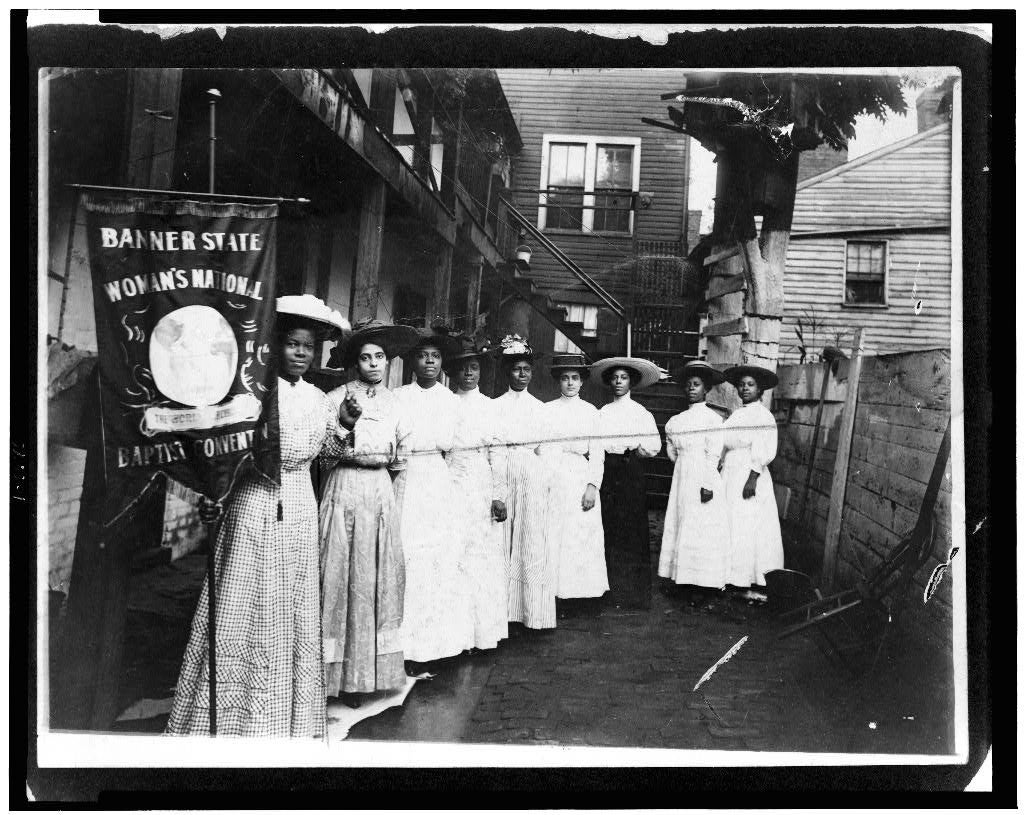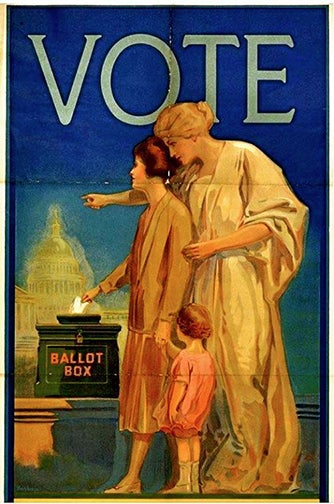KINGSTON, R.I. – Feb. 16, 2021 – The 2020 elections were historic for a number of reasons. Not only did our nation elect the first woman, first African-American and first Asian-American vice president in its history, it also experienced record-breaking voter turnout. In total, more than 155 million Americans turned out to vote, including record numbers of women and people of color.
In the wake of this historic election, the University of Rhode Island continues its “Long Rhode to the Vote: Suffrage Centennial Lecture Series” Thursday, Feb. 25 at 7 p.m. with a virtual discussion featuring Rhode Island Rep. Justine Caldwell (D-East Greenwich), veteran political strategist Kate Coyne-McCoy and Stella Rouse, associate professor at the University of Maryland’s Department of Government and Politics and director of its Center for Democracy and Civic Engagement.
The virtual discussion, Getting Out the Vote, will evaluate the legacy of the 19th Amendment by exploring contemporary initiatives designed to empower not only women but also millennials and Latinos in politics.
URI’s Long Rhode to the Vote series began last fall to commemorate two monumental events in American history: the 100th anniversary of the 19th Amendment, granting American women the right to vote, albeit with barriers for many women of color, and the 150th anniversary of the 15th Amendment, which at least nominally enfranchised African-American men.
“In 2021 we find ourselves at a particularly important moment in which to use history to interpret current events. In recent months, a sitting president and his followers sought to disenfranchise millions of Americans by disputing the validity of their ballots. In addition, there are currently efforts underway in state legislatures across the country that aim to limit access to the vote,” said Evelyn Sterne, associate professor of history and director of URI’s Center for the Humanities. “Now more than ever we must take this opportunity to appreciate the value of the suffrage and learn from Americans’ past struggles to win that precious right which is so central to our democracy and to who we are as a nation.”

Designed to explore both suffrage history and modern-day voting issues, the series is sponsored by the URI Center for the Humanities, the Department of Gender and Women’s Studies, URI’s College of Arts and Sciences, the Honors Program, the Women’s Leadership Council, the Gender and Sexuality Center, the Women’s Center and the Suffrage Centennial Committee.
All events are free and open to the public. Registration is required.
Upcoming spring lectures and featured speakers as part of the series include:
March 4: The Queer History of the Suffrage Movement—Historian Wendy Rouse, associate professor at San Jose State University, will discuss the traditional narrative of suffrage history that sanitized the private lives and public personas of individual suffragists, contributing to the historical erasure of the lives and loves of prominent gay suffragists.
March 25: Historical Perspectives on Woman Suffrage: Rhode Island and Beyond—This panel will explore the history of woman suffrage in Rhode Island as well as the legacy of women running for office today. It will feature historian and Newport History editor Elizabeth Stevens; historian and RIC associate professor Elisa Miller; and political scientist and URI lecturer Emily Lynch.
April 21: Felon Disenfranchisement and the History of Women’s Voting Rights—Historian Pippa Holloway, the Douglas Southall Freeman Distinguished Chair in History at the University of Richmond, will discuss her research on felon disenfranchisement as it relates to the history of women’s voting rights.
For more information, or to register, please visit uri.edu/suffrage.

